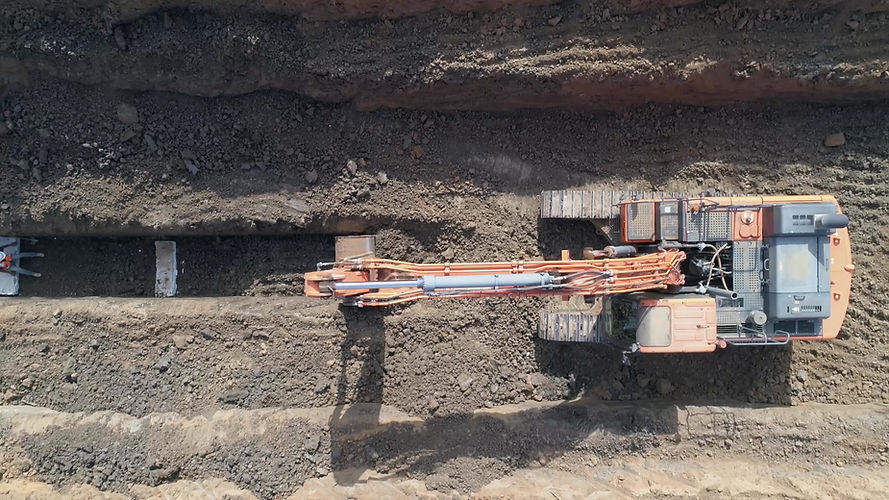


Structured FUEL
Structured Fuel is a new approach to clean, emissions-reducing (CO₂, NOₓ and particulate matter), drop-in replacement fuel. 360 ENERGY has revolutionized the way fuels can be decarbonized while exceeding peak performance. "Decarbonized fuel" refers to energy sources that either contain little or no carbon or are produced in ways that significantly reduce or eliminate carbon dioxide (CO₂) emissions. These fuels are a key part of the global transition to cleaner energy, especially in hard-to-electrify sectors like heavy industry, aviation, and shipping.
Why It Matters
-
Climate change: Reducing CO₂ emissions is crucial to limit global warming.
-
Energy transition: Enables decarbonization of sectors where direct electrification is difficult.
-
Energy security: Domestic production of decarbonized fuels can reduce dependence on imported fossil fuels.
-
Cost: Unmatched fuel efficiency in the diesel market, saving time on refueling and money.
-
Engine maintenance: Incredible cleaning properties increasing overall performance and longevity of equipment.
DIESEL CONSUMPTION
In North America

11,000,000
LITERS/DAY
Marine Shipping consumes about 11 million liters/day
176,400,000
LITERS/DAY
Road Freight & Heavy-Duty Trucks consume about 176.4 million liters/day.
21,600,000
LITERS/DAY
Rail Transport consumes about 21.6 million liters/day.
100
PERCENT
%
Nearly 100% of heavy-duty trucks in North America run on diesel.
-
Intermediate fuel oil and marine diesel oil (MDO/MGO) fuels 98% of marine shipping, making it the dominant energy provider.
-
Diesel powers over 96% of all long-haul freight trucks, which are the backbone of the continent’s freight system.
-
Diesel oil fuels the vast majority of rail freight making it the dominant fuel for the movement of goods in North America.

Reduced-Carbon Replacement Fuel is the Future of Heavy Mobile Transportation.

Fuel of the Future
A New Era in Diesel: Carbon-Reduced Structured Fuel
Conventional diesel combustion contributes significantly to global CO₂ and NOₓ emissions, despite diesel engines representing a smaller share of the vehicle fleet compared to gasoline. This imbalance highlights the critical need for innovation in decarbonizing hard-to-electrify sectors, particularly freight, agriculture, rail, and maritime transport.
360 ENERGY FUEL has developed a proprietary, carbon-reduced Structured Fuel designed to serve as a high-efficiency, drop-in alternative to traditional fossil diesel. Our fuel maintains the energy density and performance characteristics required by heavy-duty applications, while eliminating carbon-based emissions at the source. It enables clean combustion, drastically reduces particulate and NOₓ outputs, and integrates seamlessly with existing diesel engine infrastructure—without requiring system overhauls or retrofitting.
By leveraging advanced fuel chemistry and precision molecular engineering, 360 ENERGY FUEL is addressing the carbon intensity of critical industries and paving a scalable path to fuel efficiency and deep decarbonization.
TRANSPORTATION
AGRICULTURE
RAIL FRIEGHT
INDUSTRIAL
SHIPPING

Advanced Fuel Technology
Advanced Structured Fuel from 360 ENERGY FUEL is a next-generation, carbon-reduced formulation unlike anything currently available on the market. Engineered by leading fuel scientists to outperform conventional diesel, it delivers exceptional thermal efficiency, cleaner combustion, and dramatically reduced emissions—all without compromising power or engine compatibility.
This is not a fuel additive or blend, but a fully-formed, standalone diesel replacement designed from the ground up with sustainability, efficiency, and operational integrity in mind. Ready for immediate deployment at scale, this breakthrough fuel sets a new standard for performance and environmental responsibility across marine transportation, industrial, and heavy-duty transport sectors.
Fuel Trends & Insights
Globally, diesel remains the preferred fuel for heavy-duty vehicles, including ship, trains, trucks, and buses, due to its superior energy density and efficiency. This entrenched reliance underscores the urgent need for cleaner, more sustainable diesel alternatives to meet evolving environmental standards.

